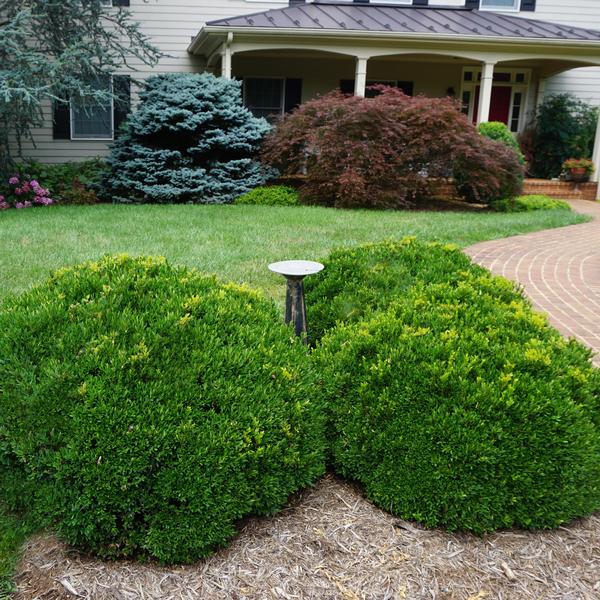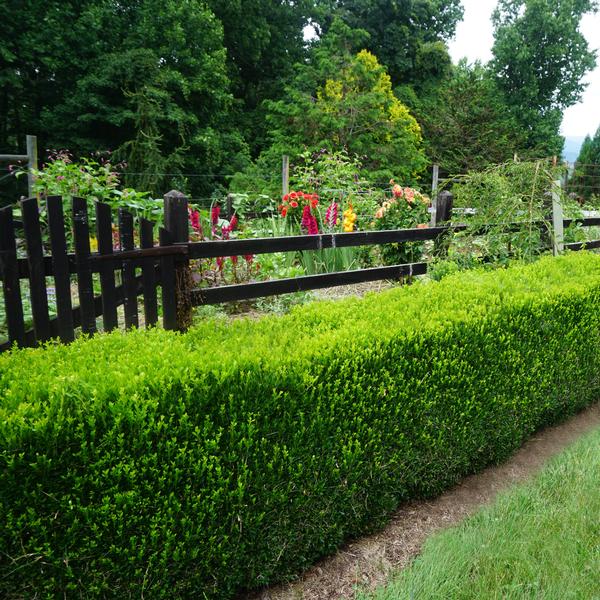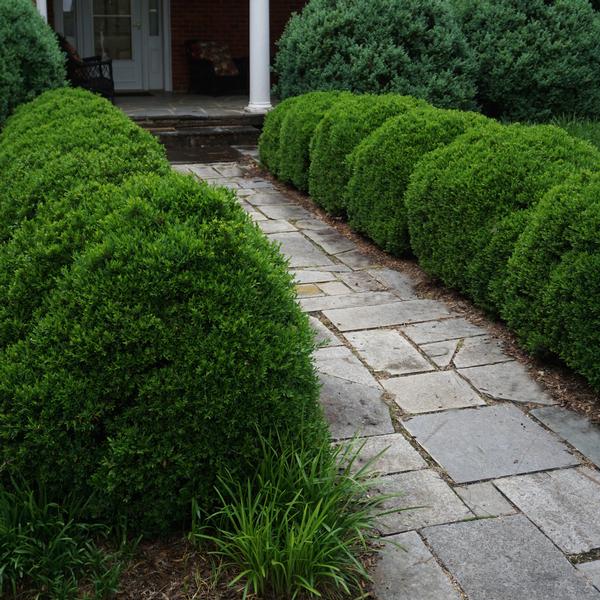Buxus sempervirens 'Justin Brouwers'
Justin Brouwers Boxwood
Saunders Brothers has discontinued growing this variety in favor of better performing boxwood. Please see additional information for recommended substitutes.
A compact, mounding to rounded boxwood that is very versatile. Foliage is deep green in summer and winter. Responds well to pruning if a small hedge is desired. Leave unpruned and a beautiful rounded habit will form. Deer resistant.
- » Slow to medium growth rate; 1"-3" per year
- Category:Shrubs
- Hardiness Zone:6-8
- Tall:2 Feet
- Wide:2-3 Feet
Foliage Color
| • | Green |
Soil Moisture Preference
| • | Good Drainage |
Wildlife
| • | Deer Resistant |
Boxwood Exposure
| • | Sun (Location is sunny from late morning to late afternoon) |
| • | Shade (Location has no direct sun) |
| • | Part Shade (Location is primarily shaded from late morning to late afternoon) |
Boxwood Zone
| • | Zone 6 (Average Annual Minimum Temperature -10 F to 0 F) |
| • | Zone 7 (Average Annual Minimum Temperature 0 F to 10 F) |
| • | Zone 8 (Average Annual Minimum Temperature 10 F to 20 F) |
Boxwood Foliage Color
| • | Green (Foliage is Predominately Green) |
Additional Information about Buxus sempervirens 'Justin Brouwers'
Recommended Substitutes: 'Little Missy', 'Green Gem', 'Green Velvet', 'Green Mound'
Growing & Maintenance Tips for Buxus sempervirens 'Justin Brouwers'
Care: ‘Justin Brouwers’, as a juvenile plant and up to about 10-12 inches, has a slightly upright habit. An annual pruning to round the plant should occur in late winter or early spring. Thereafter it can be left basically unpruned and will develop into a plant that is somewhat rounded. An occasional light pruning in late winter or early spring may be preferred.
When used as edging, parterres, or knot gardens, pruning and shearing will be necessary. Use hand pruners or shears. Thinning in late winter or early spring is recommended to lessen disease occurrence.
‘Justin Brouwers’ is very susceptible to boxwood leafminer and very susceptible to boxwood blight. Special care should be taken when planting to ensure the plant is properly elevated and all drainage issues are addressed as it is sensitive to poorly drained soils.
Interesting Notes about Buxus sempervirens 'Justin Brouwers'
Comments: Recent boxwood DNA tests have shown that ‘Justin Brouwers’ is a sempervirens cultivar and not a sinica insularis. ‘Justin Brouwers’ has been a favorite of ours for many years as a replacement for ‘Suffruticosa’ (English boxwood). Gardeners should be aware of its boxwood blight susceptibility especially when sheared tightly or in areas of low air movement. If planted correctly this plant is stunning; however, we have seen numerous cases where it is planted in areas of poor drainage and the plant struggles.
Uses: Small specimen, low hedge, foundation plant, edging, parterre, or knot garden
Substitutes: ‘Little Missy’, ‘Green Gem’, ‘Green Velvet’, ‘Richard’, ‘Green Mound’


